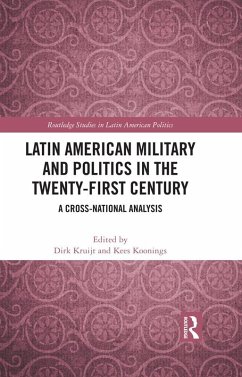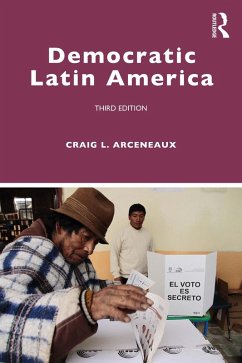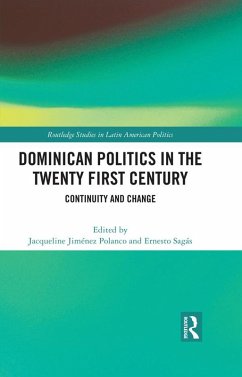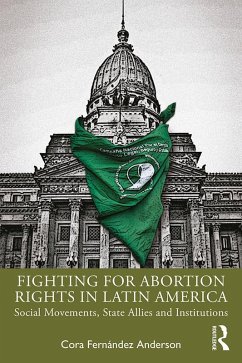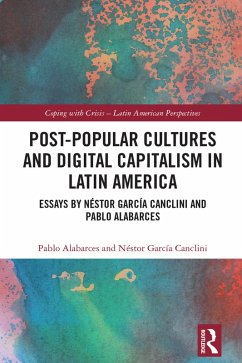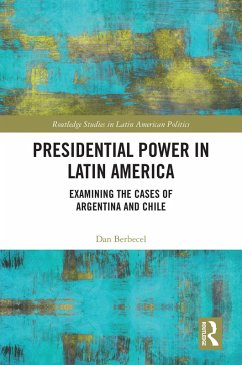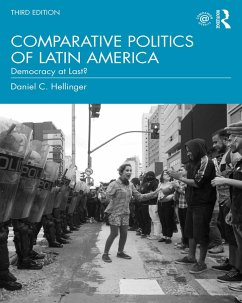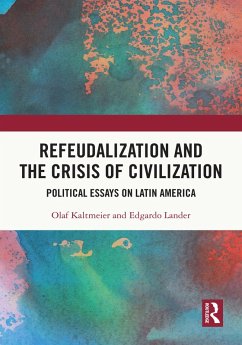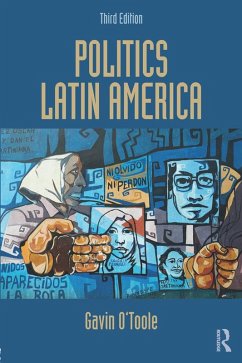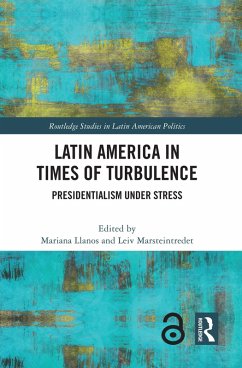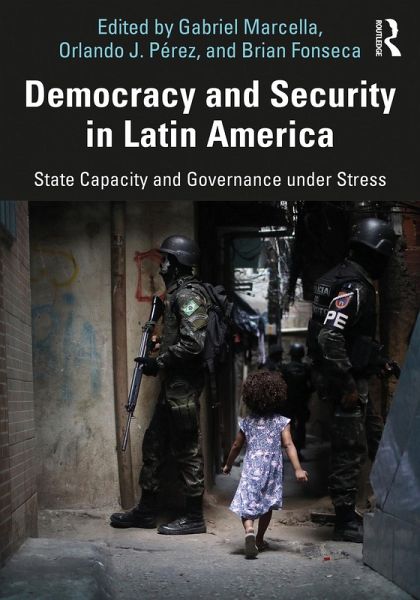
Democracy and Security in Latin America (eBook, PDF)
State Capacity and Governance under Stress
Redaktion: Marcella, Gabriel; Fonseca, Brian; Pérez, Orlando J.
Versandkostenfrei!
Sofort per Download lieferbar
37,95 €
inkl. MwSt.
Weitere Ausgaben:

PAYBACK Punkte
19 °P sammeln!
The COVID-19 pandemic has highlighted the need for governments to generate the necessary capacity to address important security and institutional challenges; this volume deepens our understanding of the nature and extent of state governance in Latin America.State capacity is multidimensional, with all elements interacting to produce stable governance and security. As such, a collection of scholars and practitioners use an explicit interdisciplinary approach, drawing on the contributions of history, political science, economics, public policy, military studies, and other fields to gain a rounde...
The COVID-19 pandemic has highlighted the need for governments to generate the necessary capacity to address important security and institutional challenges; this volume deepens our understanding of the nature and extent of state governance in Latin America.
State capacity is multidimensional, with all elements interacting to produce stable governance and security. As such, a collection of scholars and practitioners use an explicit interdisciplinary approach, drawing on the contributions of history, political science, economics, public policy, military studies, and other fields to gain a rounded understanding of the link between security and democracy.
Democracy and Security in Latin America is divided in two sections:
Democracy and Security in Latin America should appeal not only to those seeking to learn more about the capacity of the democratic state in Latin America to effectively provide public security in times of stress, but to all those curious about the reality that a democracy must have security to function.
State capacity is multidimensional, with all elements interacting to produce stable governance and security. As such, a collection of scholars and practitioners use an explicit interdisciplinary approach, drawing on the contributions of history, political science, economics, public policy, military studies, and other fields to gain a rounded understanding of the link between security and democracy.
Democracy and Security in Latin America is divided in two sections:
- Part 1 focuses on the challenges to governance and key institutions such as police, courts, armed forces. and the prison system.
- Part 2 features country case studies that illustrate particularly important security challenges and various means by which the state has confronted them.
Democracy and Security in Latin America should appeal not only to those seeking to learn more about the capacity of the democratic state in Latin America to effectively provide public security in times of stress, but to all those curious about the reality that a democracy must have security to function.
Dieser Download kann aus rechtlichen Gründen nur mit Rechnungsadresse in A, B, BG, CY, CZ, D, DK, EW, E, FIN, F, GR, HR, H, IRL, I, LT, L, LR, M, NL, PL, P, R, S, SLO, SK ausgeliefert werden.




